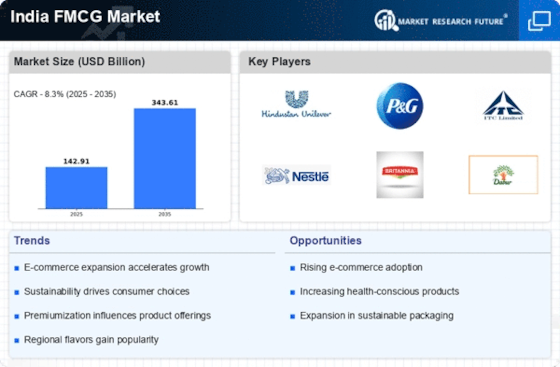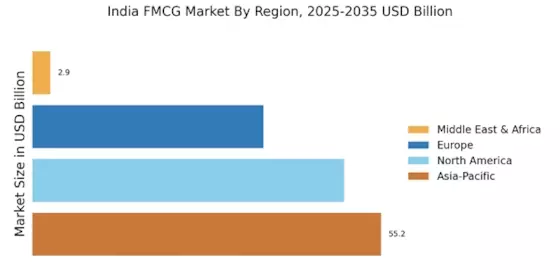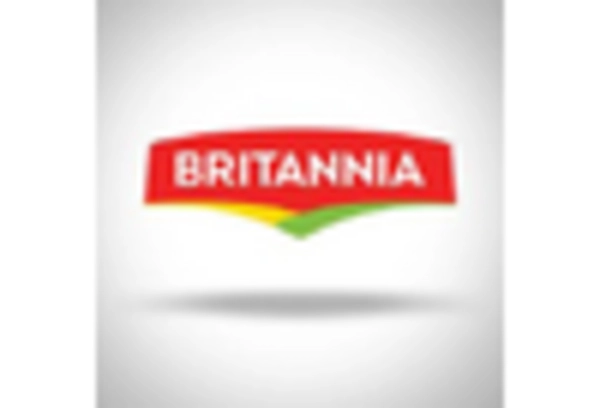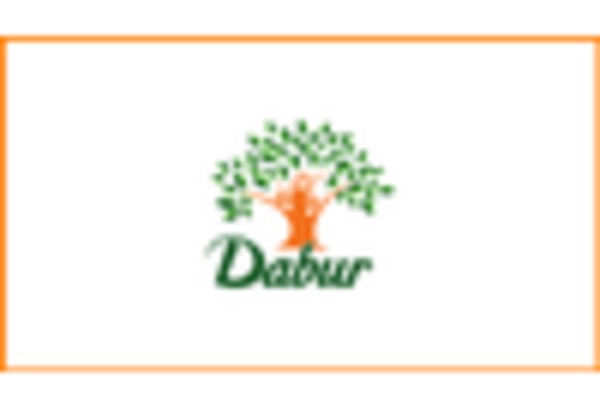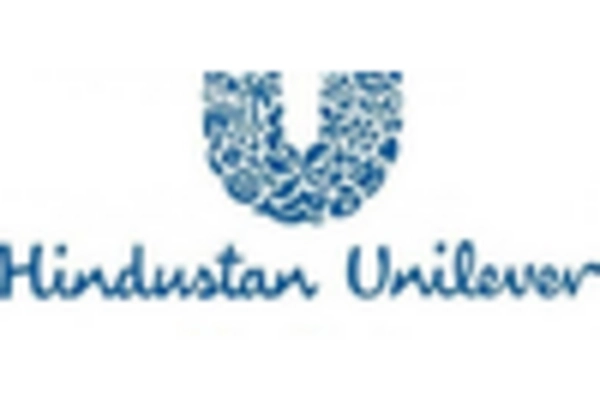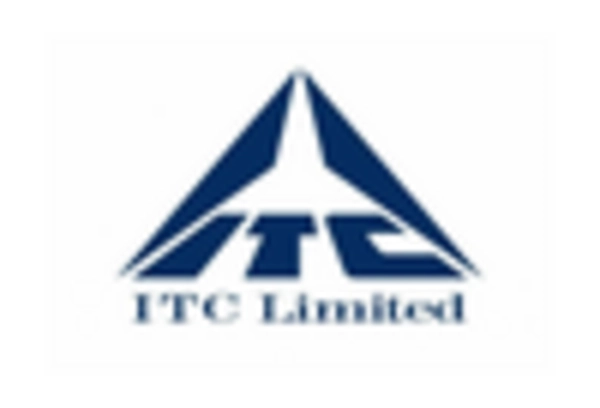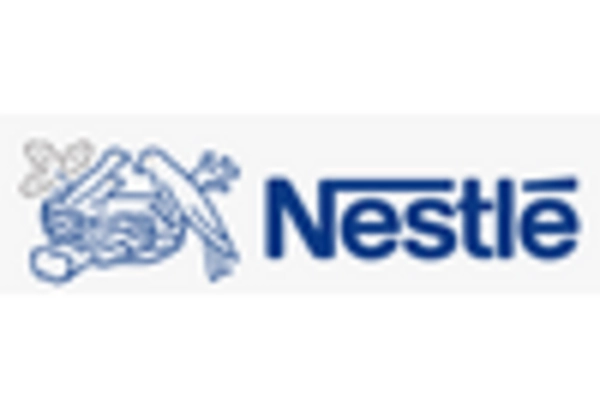Rising Disposable Income
The increase in disposable income among the Indian middle class is significantly influencing the india fmcg market. With a growing economy, more households are experiencing enhanced purchasing power, which translates into higher spending on consumer goods. Reports indicate that the middle class is expected to reach 600 million by 2030, leading to a surge in demand for premium products. This demographic shift suggests that brands in the india fmcg market may need to adapt their offerings to cater to the evolving preferences of a more affluent consumer base, focusing on quality and brand value.
Urbanization and Changing Lifestyles
The rapid urbanization in India is a pivotal driver for the india fmcg market. As more individuals migrate to urban areas, there is a noticeable shift in consumption patterns. Urban consumers tend to favor convenience, leading to increased demand for packaged and ready-to-eat products. According to recent data, urban areas account for approximately 35% of India's population, yet they contribute to over 60% of the total FMCG sales. This trend suggests that as urbanization continues, the india fmcg market will likely experience substantial growth, driven by the evolving preferences of urban consumers who seek quality and convenience in their daily purchases.
Health Consciousness and Wellness Trends
The growing awareness of health and wellness among Indian consumers is a significant driver for the india fmcg market. As lifestyles become more health-oriented, there is an increasing demand for organic, natural, and health-focused products. Recent surveys indicate that nearly 70% of consumers are willing to pay a premium for healthier options. This trend is prompting FMCG companies to innovate and expand their product lines to include healthier alternatives, thereby aligning with the evolving preferences of health-conscious consumers. The india fmcg market is likely to see a surge in products that cater to this demand, reflecting a broader shift towards wellness.
Government Initiatives and Policy Support
Government initiatives aimed at boosting the manufacturing sector are playing a crucial role in the india fmcg market. Policies such as 'Make in India' and various incentives for local production are encouraging companies to invest in domestic manufacturing. This not only enhances supply chain efficiency but also reduces dependency on imports. Recent data suggests that the FMCG sector is expected to grow at a rate of 9-10% annually, supported by favorable government policies. As a result, the india fmcg market is likely to benefit from increased production capabilities and a more robust supply chain, ultimately leading to greater availability of products for consumers.
Digital Transformation and E-commerce Growth
The digital transformation in India is reshaping the landscape of the india fmcg market. With the proliferation of smartphones and internet access, e-commerce platforms are becoming increasingly popular for purchasing FMCG products. Data shows that the online grocery market is projected to grow at a CAGR of over 30% in the coming years. This shift towards online shopping not only provides convenience but also allows consumers to access a wider range of products. Consequently, companies in the india fmcg market are likely to invest more in digital marketing and e-commerce strategies to capture this growing segment of tech-savvy consumers.


